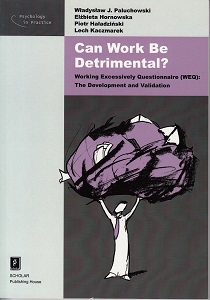
We kindly inform you that, as long as the subject affiliation of our 300.000+ articles is in progress, you might get unsufficient or no results on your third level or second level search. In this case, please broaden your search criteria.

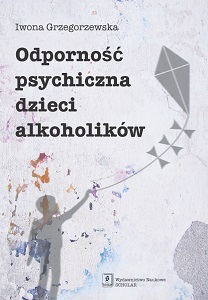
Dzieci z rodzin z problemem alkoholowym stanowią grupę wysokiego ryzyka dotyczącego zaburzeń zdrowia psychicznego. Ostatnie szacunki wskazują, że w Polsce około 1,5 mln dzieci wychowuje się przy pijącym rodzicu. Dzięki licznym badaniom empirycznym coraz lepiej rozumiemy ich sytuację. Zaburzenia psychiczne rodziców bezpośrednio wynikające z uzależnienia oraz z nim współistniejące mogą negatywnie oddziaływać na zdrowie fizyczne i psychiczne dzieci i młodzieży na różnych etapach życia, jak też prowadzić do wystąpienia objawów eksternalizacyjnych i internalizacyjnych. Najnowsze prace naukowe podkreślają jednak duże zróżnicowanie populacji dzieci alkoholików, a wiedza empiryczna pozwala na coraz lepsze rozumienie mechanizmów odpowiedzialnych za to zróżnicowanie. Książka stanowi kontynuację zainteresowań autorki problematyką funkcjonowania dzieci alkoholików. Znaczne rozpowszechnienie problemu alkoholizmu w społeczeństwie skłania do nieustannego poszerzania wiedzy na temat dzieci uzależnionych rodziców oraz poszukiwania empirycznych dowodów na obecność istotnych dla ich rozwoju czynników ryzyka i zasobów. Wyniki tych badań mogą wpłynąć na poprawę skuteczności i efektywności programów profilaktycznych oraz działań interwencyjnych, kierowanych do dzieci i młodzieży szczególnie zagrożonych zbyt wczesnym i nadmiernym spożywaniem alkoholu oraz innych substancji psychoaktywnych.
More...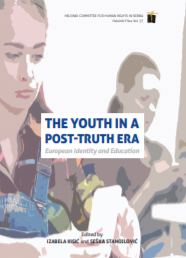
(English edition) Ongoing public debates frequently focus on European identity. What sparked off such debates were tremendous global changes after the Cold War, disappearance of two opposing blocs, ethnic conflicts, migrations, sociopolitical crises of liberal societies as well as the mass renouncement of value-based orientations Europe and the whole world had been built on after World War II and defeat of Nazism. People all over the world are now growingly concerned with the issues of statehood, ethnicity and the notion of “being a citizen.” Political manipulation of collective identities badly affects people’s lives and policies on which societies are being built. Many theoreticians are questioning – and with good reason – the very notion of collective identity, ethnic in the first place, as extremely exclusive. The Helsinki Committee for Human Rights in Serbia has launched a series of round tables under the title “Youth in a Post-Truth Era: European Identity and Education.” Participants were intellectuals of younger generations mostly, NGO activists and civil sector representatives, but secondary school and university students too. What we wanted achieve with these open debates – never devoid of controversial arguments – was to give shape to authentic views with impact on practical politics and (in)formal education of the youth. Our researches and experience in communication with young people show that they do care about collective identities, and that their ethnicities and religions are crucial in identity-building. Although they recognize the potential of Euro-integration for, say, better schooling or economic progress, a snail’s pace of the accession process and domestic propaganda make them turn to other international players. Young Serbs are turning to Russia and Putin, Bosniaks to Turkey and Erdogan, while young Hungarians to Serbia’s neighbor in the north and Orban. Revisionism also strongly influences the youth regardless of their ethnicities. They practically always oppose strongly any questioning of patriarchal values and react fiercely to it. Value-based orientations as such are mostly the effects of the spread of fake news and narratives predominant in the media, schools environments and families; the narratives that forced their way into the public sphere in the 1980s, bloomed in the 1990s and are thriving now against the global backdrop. Is the narrative about European identity and education a key to changes and inclusive enough? When I say European identity I am not advocating for Euro-centrism, especially not now when it implies social and economic exclusion of people heading for Europe from various continents and countries, or those outside the European Union. In Balkan countries aspiring to EU membership European identity is used as a political instrument supportive to integration processes. At the same time, it supports the transfer from a one-dimensional, nationalistic and wartime identity to a multi-dimensional, civic one. As it has turned out so far, the issues of class consciousness, socioeconomic justice and the right to education for all will be predominant in the debates to come. We do not intend to impose alternative narratives on the youth but to capacitate them for critical thought; to help them recognize and stand up against social repression and collective identities that have been imposed on them and exclude any “otherness.” Ever since the early 1990s the European Commission has also been focused on the researches of European identity (or identities). The European bureaucracy was interested in it for very practical reasons: the European Commission’s concern with the manner in which different processes of identification with the European Union shape integrative processes and strengthen the sense of solidarity among Europeans. On the eve of the Gothenburg Summit in November 2017 the European Commission issued guidelines for strengthening of the common European identity through education and culture, under the motto “unity in diversity.” The document was meant for the European Parliament, the Council of Europe, the European Socioeconomic Committee and the Committee of Regions. It was motivated by the rise of populism “at home” and beyond the EU, the spread of fake news and manipulation of information networks. Given that the EU administration interferes not into educational systems and culture of its member-states but leaves them to national, regional and local authorities, its role is limited to strengthening of cooperation and support to national projects in these spheres. It realized that education and culture make Europe attractive for learning and working, attractive as a space of freedom and shared values reflected in fundamental rights and an open society. And education as such builds foundations for active citizenship and helps to prevent populism, xenophobia and violent radicalism. Education, along with culture, plays a key role in cross-border meetings and learning about the true meaning of “being a European.” According to an analysis commissioned by the European Commission, joint, cross-border actions such as engagement in social movements or in organizations with shared goals (such as ecologic organizations) can promote the sense for European identity since collective actions are always taking into consideration the “other’s” points of view. How to involve candidates for the membership of the EU in the debate on Europe’s future and identity (identities) is among major issues. Isolated periphery and people’s frustration with accession that is being constantly postponed incite Euroskepticism and passivity of the youth who actually stand for European integration. The publication “European Identity and Education” resulted from a series of discussions and debates organized by the Helsinki Committee. Its introductory section presents one of the essays and political analyses of the international and local context in which Serbia’s youth are being raised: “Democracy, Pluralism and Extremism” by Vladimir Gligorov. The following section presents readers with draft practical politics for those dealing with institutional and informal education of the young. These draft policies, actually suggestions, are about teaching methods that may efficiently develop critical thinking among the youth and their awareness about alternatives. Inter alia, the suggested approaches are meant to motivate young people to get actively involved in building of a democratic society based on pluralism, inter-culturalism, solidarity and socioeconomic rights. Recommendations can be summed up as follows: 1. Strengthening of the idea of active citizenship; 2. Media literacy and development of critical thinking of the youth; and 3. Development and modernization of educational programs and present approaches to education of school children. Drafts of public policies were on the agenda of debates held in Belgrade and Novi Sad with participation of scholars and activists from younger generations mostly, concerned with the issues of identity and education. This publication also presents excerpts from those debates. How possibly could cosmopolitanism, inter-culturalism, anti-fascism and open society be promoted in today’s Serbia but also in Europe where extremism, fear of “otherness,” concerns for the safeguard of one’s own national identity that is allegedly threatened, be on the up and up? This is one of major dilemmas facing us today. Few students have access to informal education that rests on the principles guiding a democratic society. Speaking from experience many participants in debates pointed to the lack in professional staffs involved in educational process. Civic education is being marginalized in elementary and secondary schools. The participants also presented well-thought-out arguments against religious teaching in school curricula. The majority of participants take that strengthening of informal education that would lead towards incorporation of similar contents and methods into the educational system could be a solution to the above-mentioned dilemma. That would be a chance for attracting young people whose interests and ambitions are well beyond the rigid educational system, they argue. Positive experiences of Yugoslavia’s interculturalism and socialism, and the common history and culture can be used as resources for strengthening interculturalism throughout the region. Small steps forward within institutions that depend, above all, on individual activism and courage are another possible approach to resolution. This publication is meant as a contribution to local but also more extensive debate on European identity and new European policies that would cope with today’s challenges by far more efficiently.
More...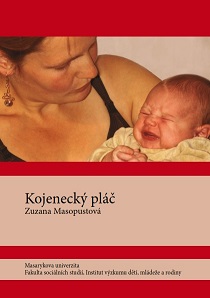
The publication is concerned with the topic of infant crying. The research objective of the study was to determine whether the perception of infant crying is influenced by psychological characteristics of the mother. The data on 310 women were collected during their pregnancy and after delivery. Maternal psychological characteristics were obtained from self-report questionnaires during the first data collection (3rd trimester).The data about infant’s crying behaviour were obtained during the second data collection (between 4th and 8th week after delivery).The second data collection also included the original questionnaire Feelings about Infant Crying and Infant Crying Characteristics. The relationships between maternal characteristics and their perception of infant crying were significant.
More...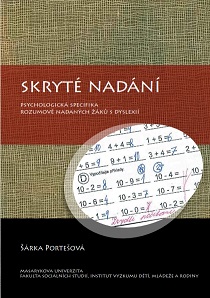
This overview monograph is focused on psychological specifics of intellectually gifted learners whose abilities are often concealed due to the simultaneous existence of a specific learning disability, dyslexia. The publication gives an overview of the genesis of international professional interest in this issue and it is dedicated especially to the issue of psychological assessment and pedagogical identification of the population of the gifted. Emphasis is laid, among others, on describing the barriers and stereotypical approaches considerably impeding relevant identification. Moreover, the author also pays attention to an overview of typical cognitive, social and emotional characteristics of the examined population of the gifted and points to significant risks resulting from wrong or insufficient identification. Amongst highly adverse consequences, there is the issue of the origin of social and emotional problems, forming chronic academic failure, and disturbing the stability of functioning of the whole system in which the child is growing up. Furthermore, she also suggests possibilities of psychological counselling and modifying ways of education regarding the examined population of gifted pupils and students.
More...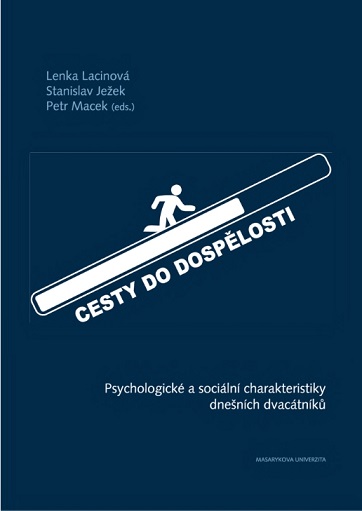
In the course of last five years, a team of psychologists from the Institute for Children, Youth and Family Research at the Faculty of Social Studies has observed a sample of over thousand people born in 1990-1994. If you are interested how these young adults think about themselves and about the world, where and with whom they live and what relations they have, you may find the answers here. The book is thematically complex and offers a probe into novel social-psychological phenomena, such as the identity of young Vietnamese adults in Czechia or the phenomenon of “friendship with benefits”.
More...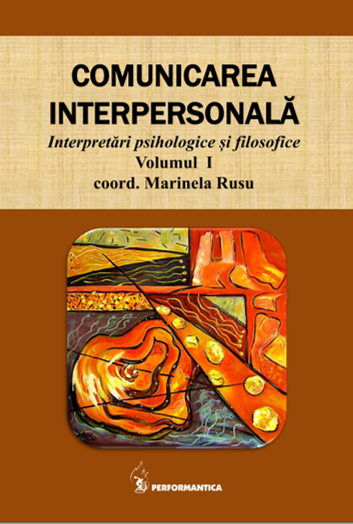
Volumul Comunicarea interpersonală - implicații în procesul educativ, nepropune o serie de lucrări, aparținând prin excelență, cadrelor didactice universitare,implicate activ în educație, cunoscători ai detaliilor de bază ale comunicăriididactice. Specialiștii au încercat să identifice sursele comunicării educaționale.Drept urmare, ei au adăugat noi teme de studiu: „comunicarea la clasă”,„comunicarea educațională” și „educația comunicării”.
More...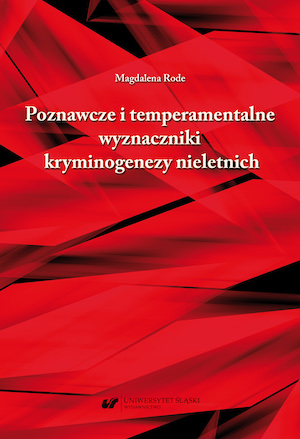
The main research problem of the present publication is the verification of cognitive and temperamental risk factors for minors' criminogenesis. The author presents the patterns of entering into social interactions of the young people and outline their personal beliefs, which reflect how they perceive the world, interpersonal relations and their attitude towards themselves. Juvenile delinquents process social information in a specific – criminogenic – way, which favors the initiation and maintenance of criminal behavior. Processing social information by juveniles will be looked into in terms of the triggered styles of criminal thinking and confronted with potential temperamental and intellectual risk factors.
More...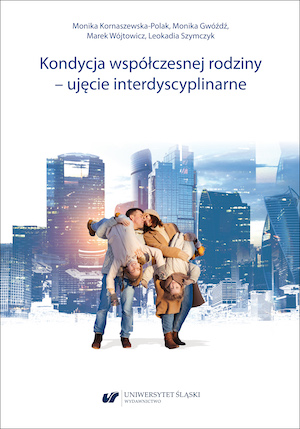
The concept of the monograph was created on the basis of the observation of contemporary world and the changes taking place in it. In the postmodern world, the concepts of human nature, family, community, love, development, freedom have been redefined – in the face of intensively changing cultural, economic, political and health phenomena. For centuries the family has been the basic source of shaping the attitudes of individuals, but now these natural processes have been degraded in favor of the progressive visions of man and society. The changes affected the family structure, its functions, rules of conduct and value systems. The monograph presents a multifaceted analysis of changes in marriage and family from the following scientific perspectives: philosophy, psychology, pedagogy, theology and canon law.
More...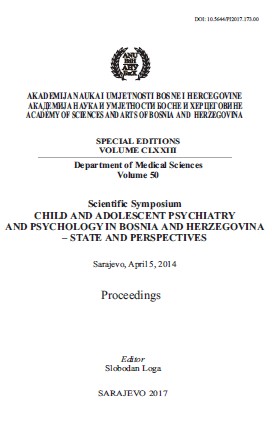
Cilj: Prikazati sadašnji model funkcioniranja i analizirati buduće perspektive Odjela za dječiju i adolescentnu Psihijatriju pri Psihijatrijskoj klinici, Univerzitetskog kliničkog centra Sarajevo. Pozadina: Odjel za dječiju i adolescentnu psihijatriju Psihijatrijske klinike postoji preko 50 godina. Funkcioniše kao jedini odjel za dječiju i adolescentnu psihijatriju u Federaciji Bosne I Hercegovine. Ciljna grupa odjela su djeca i adolescenti u dobi od 3 do 18 godina koji imaju određene psihičke poteškoće. Pacijentima se usluge pružaju kroz ambulantu, dnevnu bolnicu i zatvoreno odjeljenje. Osim toga, postoji i savjetovalište za djecu i roditelje. Zbog ekonomskih razloga i profesionalnih razmjena smatramo da je bolje da Odjel funkcioniše u okviru Psihijatrijske klinike za odrasle. Glavni nedostatak ovog modela funkcionisanja se ogleda u kasnom početku tretmana zbog straha od stigmatizacije. Metode: Uporediti model funkcionisanja Odjela za dječiju i adolescentnu psihijatriju u Sarajevu sa drugim klinikama za liječenje djece i adolescenata sa psihičkim smetnjama. Diskusija: U većini zemalja liječenje djece i adolescenata sa psihičkim poremećajima se organizira u okviru samostalnih klinika. Poredeći rad Odjela u sklopu UKC Sarajevo sa radom Zavod u sklopu KBC Zagreb vidimo da se radi o dva veoma slična modela organizacije, ali da je osnovna razlika u dostupnosti adekvatno obrazovanog kadra bez obzira što se tretira otprilike jednak broj djece i adolescenata sa različitim smetnjama. Još veću razliku uočavamo ako poredimo rad Odjela za dječiju i adolescentnu psihijatriju Sarajevo sa radom samostalnih klinika, na primjer, Psihijatrijska bolnica za djecu i mladež Zagreb ima 78 zaposlenih različitih edukativnih profila. Naš Odjel ima samo 10 zaposlenih, iako liječimo približno isti broj pacijenata. Zaključak: Cilj nam je u budućnosti uspostaviti samostalnu kliniku za djecu i adolescente. Za ovaj koncept potrebna su finansijska sredstva, multidisciplinarni profesionalni tim, oprema i prostorije čija raspoloživost zavisi od interesovanja vlasti.
More...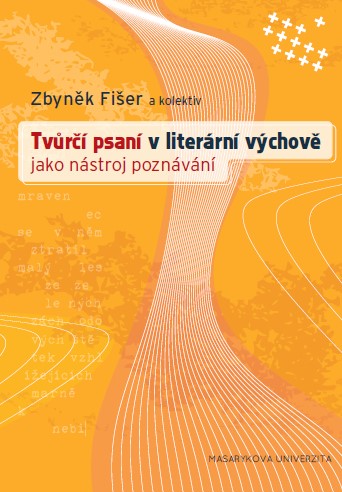
This monograph deals with the use of creative writing in literary education. It shows how exercises aimed at creating texts can be incorporated into school practice and explains why creative writing is effective as a teaching method. The authors of the monograph understand creative writing as a mental tool of cognition, as a medium of creative thinking. The methods of creative writing lead to the development of students’ perception, experiencing and thinking, and also to the development of creative communication in classrooms. At the same time, creative writing is enjoyable and (although this is not the main goal) develops the literary talent of writers. Besides the theoretical background, this book also presents individual projects (lessons devoted to a particular topic) which might be utilized not only in school education (secondary or tertiary) but also as a part of free-time activities.
More...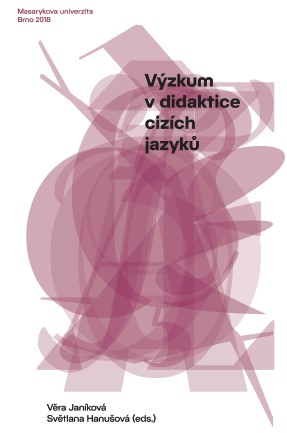
The volume of proceedings is a result of the Specific Research project conducted in 2018 with the registration number MUNI/A/0881/2017 – Research on learning and teaching foreign languages. The contributions present research studies of doctoral students in the field of Foreign Language Didactics at the Faculty of Education of Masaryk University. The studies are written in Czech.
More...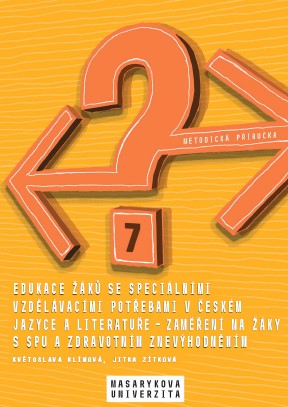
The aim of the text is supporting the inclusive education at the first stage of elementary school, a choice of suitable methods and strategies during the lessons of Czech language and literature. It deals with the topic of dyslexia, dysgraphia and dysorthography. The partial part is focused on Asperger syndrome. The main part of the text is consisted of the training lectures of all three parts of the Czech language. The text emphasizes the approaches in terms of which the educational goals are achieved together with the appropriate interaction between the participants of the educational process, the support of independence and creativity. The work describes activities focusing on the development of the key competences and accessing the subject overlap and application in terms of the cross-curricular topics.
More...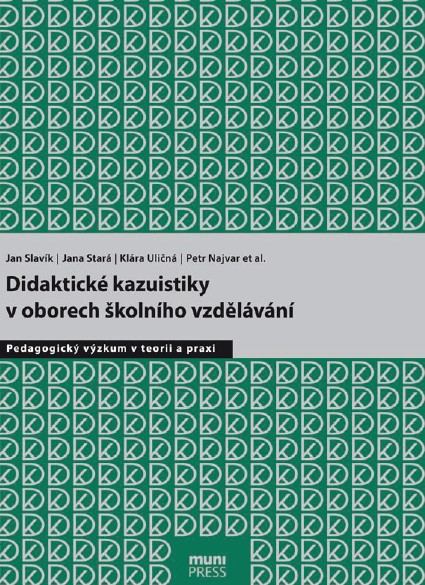
The book introduces the case study of instruction as a means of cultivating (field)didactic thinking. In the first part, case studies are introduced as a research tool in clinical fields. Particular attention is devoted to case studies of instruction and their role in transdisciplinary research in didactics. The transdidactic approach that makes use of the 3A procedure is also introduced. The second part of the book presents 25 case studies of instruction that have been developer by various teams that consisted of researchers and teachers. The book is an extension of the book Transdisciplinární didaktika: o učitelském sdílení znalostí a zvyšování kvality výuky napříč obory by J. Slavík, T. Janík, P. Najvar a P. Knecht.
More...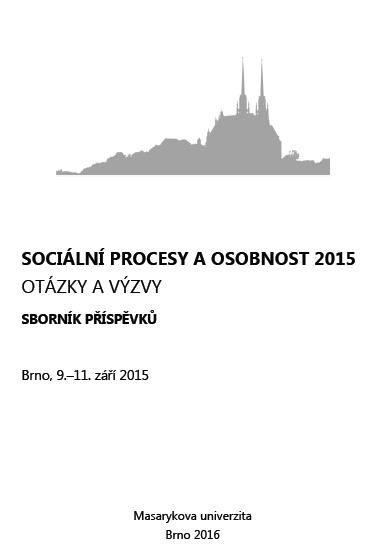
The Conference Proceedings includes full texts of presentations of both Czech and foreign participants of the Conference Social Processes and Personality, organized by Dept. of Psychology, Faculty of Arts, Masaryk University, between September 9 to 11, 2015, in Brno.
More...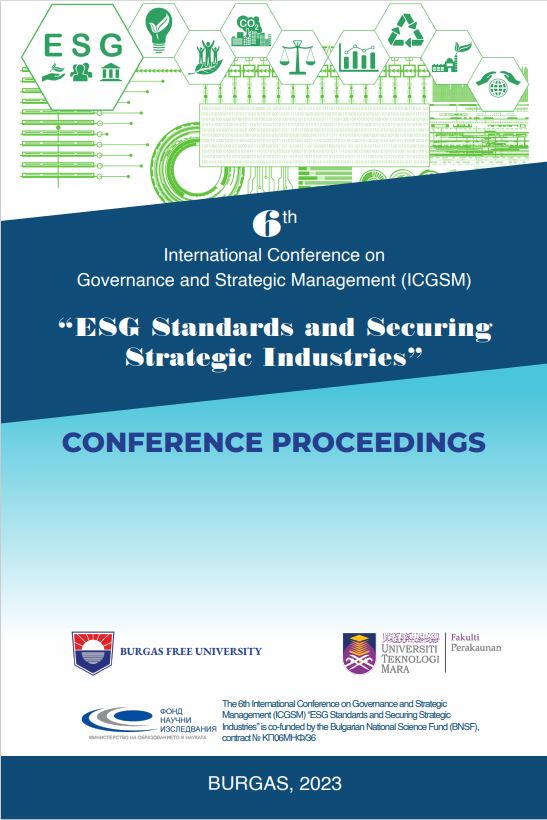
The Accounting Research Institute (ARI) of the biggest university in Southeast Asia – University Teknologi MARA (Malaysia) and the Faculty of Business Studies (FBU) at Burgas Free University are launching the VIth edition of the International Conference on Governance and Strategic Management (ICGSM). After holding the previous conferences of the ICGSM in Kuala Lumpur, Manchester, Seoul and Oxford, this year Burgas Free University (BFU) again has the honour to be selected as the host for the event. The Conference is to be held at BFU, Burgas, Bulgaria on June 08-10, 2023 and the topic of this year’s edition will be “ESG Standards and Securing Strategic Industries”.
More...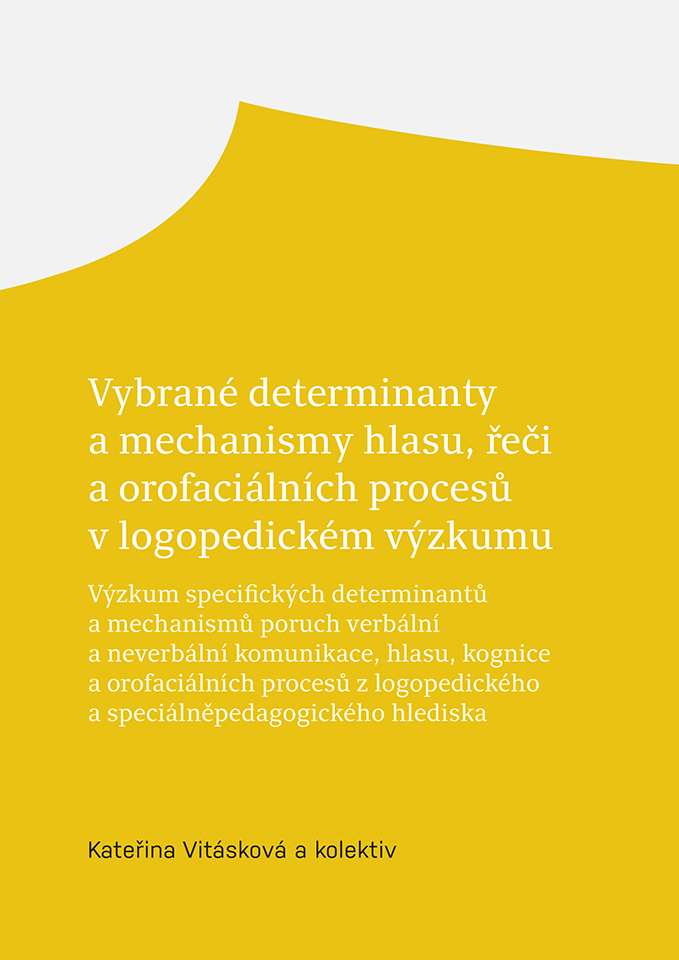
The collective monograph describes the investigation of specific determinants and mechanisms of disorders of verbal and non-verbal communication, voice, linguistic-cognitive and orofacial processes from the logopedic and special pedagogical point of view with transdisciplinary overlap into the linguistic, vocological, physiotherapeutic and psycholinguistic areas for use by the academic, scientific, clinical, educational, and counselling public. The book deals with 9 selected disorders and specifics of communication, including phonation and resonance, phatic functions, lexia and orofacial, neurodevelopmental and symptomatic speech disorders. It brings many original and innovative insights expanding the current state of knowledge in the sciences of human communication and speech-language therapy.
More...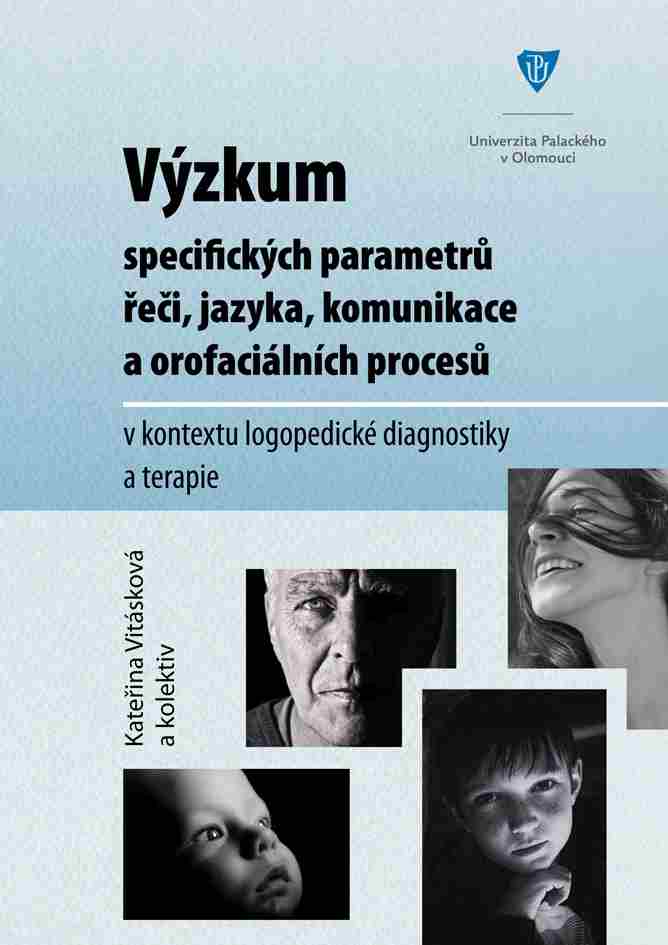
This collective monograph describes the research of specific communication parameters and orofacial process deviations in the context of speech-language pathology. These include orofacial motor skills in premature children and children at risk of developmental disorders, effect of dentition growth on the development of swallowing and speech, assessment of speech comprehensibility, phatic functions and cognition, and evaluation of pragmatics in individuals with autism spectrum disorders. The results are directly related to speech-language pathology, special education, psychology, linguistics, physiotherapy, and others. The research provides a number of original and innovative perspectives that extend the current state of knowledge in scientific disciplines focusing on human communication.
More...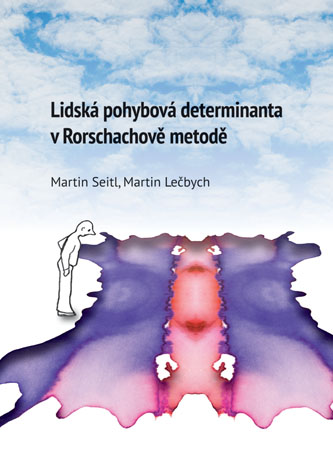
The book is intended for psychologists and researchers working with the projective method. The intention is to present the possibilities of diagnosing interpersonal adaptation and self-perception. The main part is devoted to a study based on the experience of the authors of the book with the Rorschach method as well as the existing significant approaches to scoring and interpretation of human movement determinants in the works of H. Rorschach, E. Bohm, Z. Piotrowski and others. The interpretation possibilities of the determinant for different clinical groups, alexithymia, prediction of successful adaptation and managerial performance are presented. In the study itself, the relationships of the determinant and 33 qualitative categories were verified in relation to the results of other diagnostic methods. The publication provides inspiration and practical implications for psychological research and diagnostic practice.
More...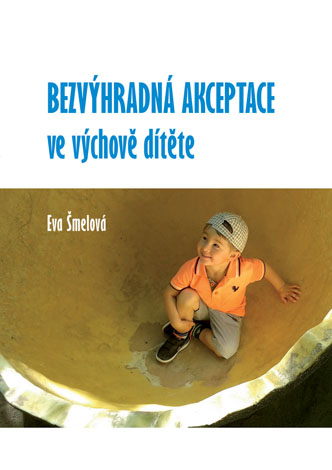
Eva Šmelová's monograph Unconditional Acceptance in Child Rearing deals with the personality of the child as an independent, self-contained existence with an emphasis on the preschool age. The author presents theoretical background, elaborated on the basis of contemporary theories. The concept of the personality of the preschool child is put into context with the basic factors influencing the child's development. The text is supplemented by simple examples and at the same time by partial outputs of selected research conducted by the author in recent years. The book is intended especially for the professional public, but also for students of teaching.
More...